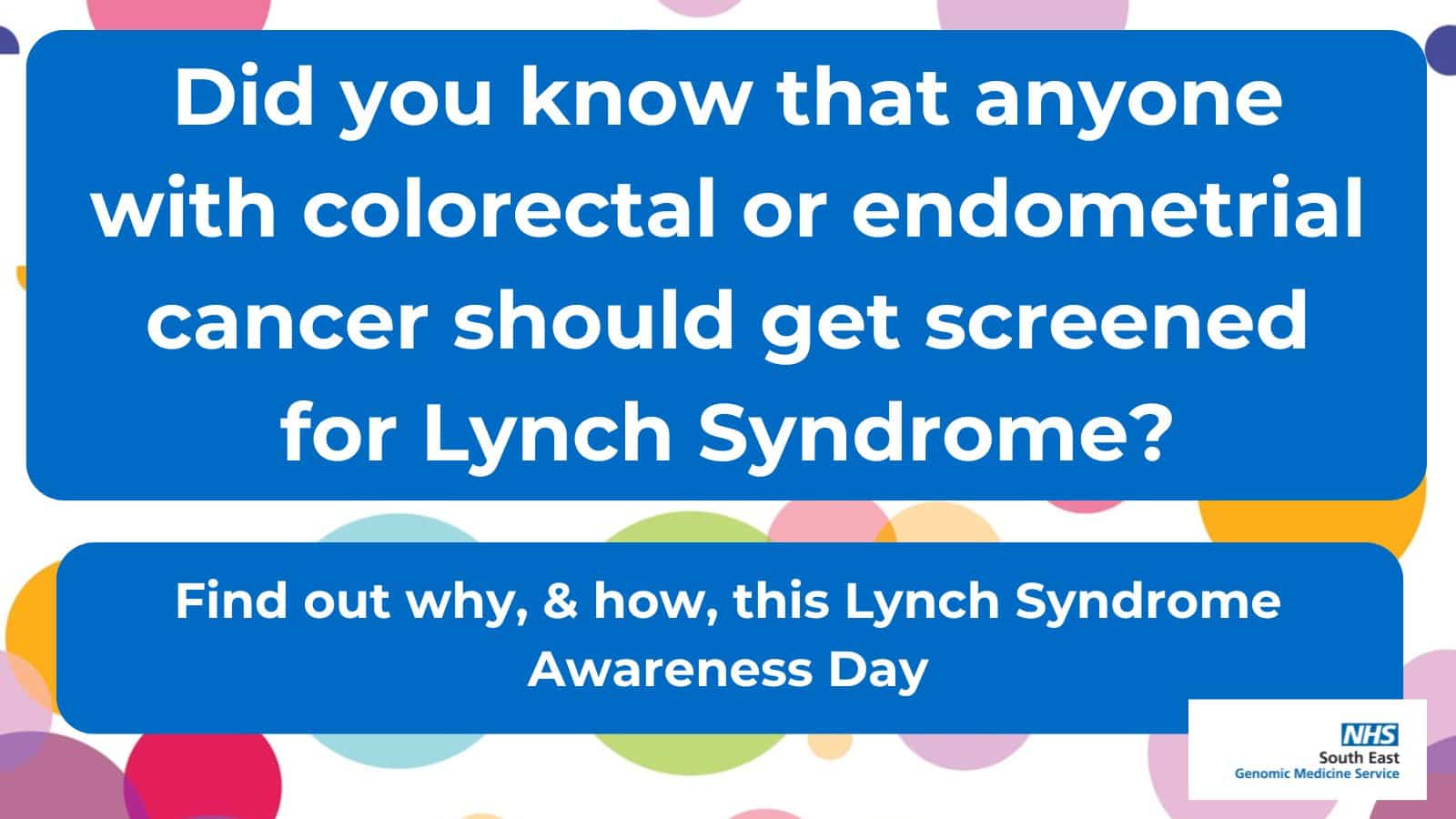If I hadn’t had the genetic test, then I wouldn’t have got the treatment that saved my life.

Tom was 36 when he was first diagnosed with stage 4 bowel cancer.
At exactly the same time, his Mum was also diagnosed with cancer. Before that there had been a few incidences of cancer in his family, but never at a young age and not in any male relatives.
“I’d never even heard of Lynch Syndrome before I was diagnosed with cancer. My Doctor told me he was fairly certain that I had Lynch because I was young, so he organised a genetic test.”
Lynch Syndrome is a genetic change that increases your chance of developing cancers, particularly bowel and endometrial cancer. 95% of people who have it are unaware.
“I spent hours on Doctor Google trying to learn about Lynch. I wouldn’t recommend it! I wanted to finish treatment, get on with my life and not think about cancer anymore.”
Tom was undergoing chemotherapy to tackle the bowel cancer when he had genetic testing. Both Tom and his Mum tested positive for Lynch Syndrome.
“It wasn’t the news I wanted. I didn’t want to face the new conversations about my future that Lynch made me have. However, I quickly realised that having Lynch may have its benefits as it meant my Doctors could treat my cancer more effectively.”
The Lynch diagnosis had a massive impact on my cancer treatment.
Tom’s Doctors now knew much more about his cancer. They also knew that it had spread to his liver and lymph nodes. This new knowledge meant that they changed his treatment plan. Research has shown that people, like Tom, who have bowel cancer and Lynch are more responsive to immunotherapies. That’s why Tom was offered immunotherapy and within three months Tom was in remission.
At the time in 2018, immunotherapy was not routinely offered on the NHS, but Tom’s Lynch diagnosis opened new doors and he was able to benefit from the technology. Tom was part of a team of patients and Doctors who have worked hard to ensure immunotherapy is now regularly offered to people like him who have bowel cancer and are positive for Lynch Syndrome.
Since then Tom has had time to reflect.
“I’ve done a lot of thinking and asked myself if I would have wanted to know that I had Lynch in my twenties and the answer is yes.
Yes, it isn’t what you would choose to have. But if I had known I had Lynch, then my cancer would have been spotted quicker and I probably wouldn’t have ended up having bowel cancer and 25 tumours.”
Tom has also spent time chatting with people who know they have Lynch Syndrome, but have not developed cancer.
“I wanted to understand how they feel and think about that alongside my own experience. I’ve come to understand that having Lynch isn’t a death sentence. There are so many things that you can do to reduce your risk of getting cancer and I’m really keen to help more people to learn about Lynch and the benefits of genetic testing.

Up to 300,000 people are thought to have Lynch Syndrome in the UK right now, but only 5% of them know they have it.
Everyone who is diagnosed with bowel or endometrial cancer are now offered genetic testing for Lynch Syndrome as part of a national NHS programme.
A genetic diagnosis of Lynch means that Doctors can treat your cancer more effectively, but it also means your family are entitled to genetic testing for Lynch and so may help prevent cancer in them.
Lynch Syndrome doesn’t cause cancer, but it does increase your risk of developing bowel cancer by 80% during your lifetime. The genetic change seen in Lynch can lead to more abnormal cells developing which then multiply and increase the risk of cancer.